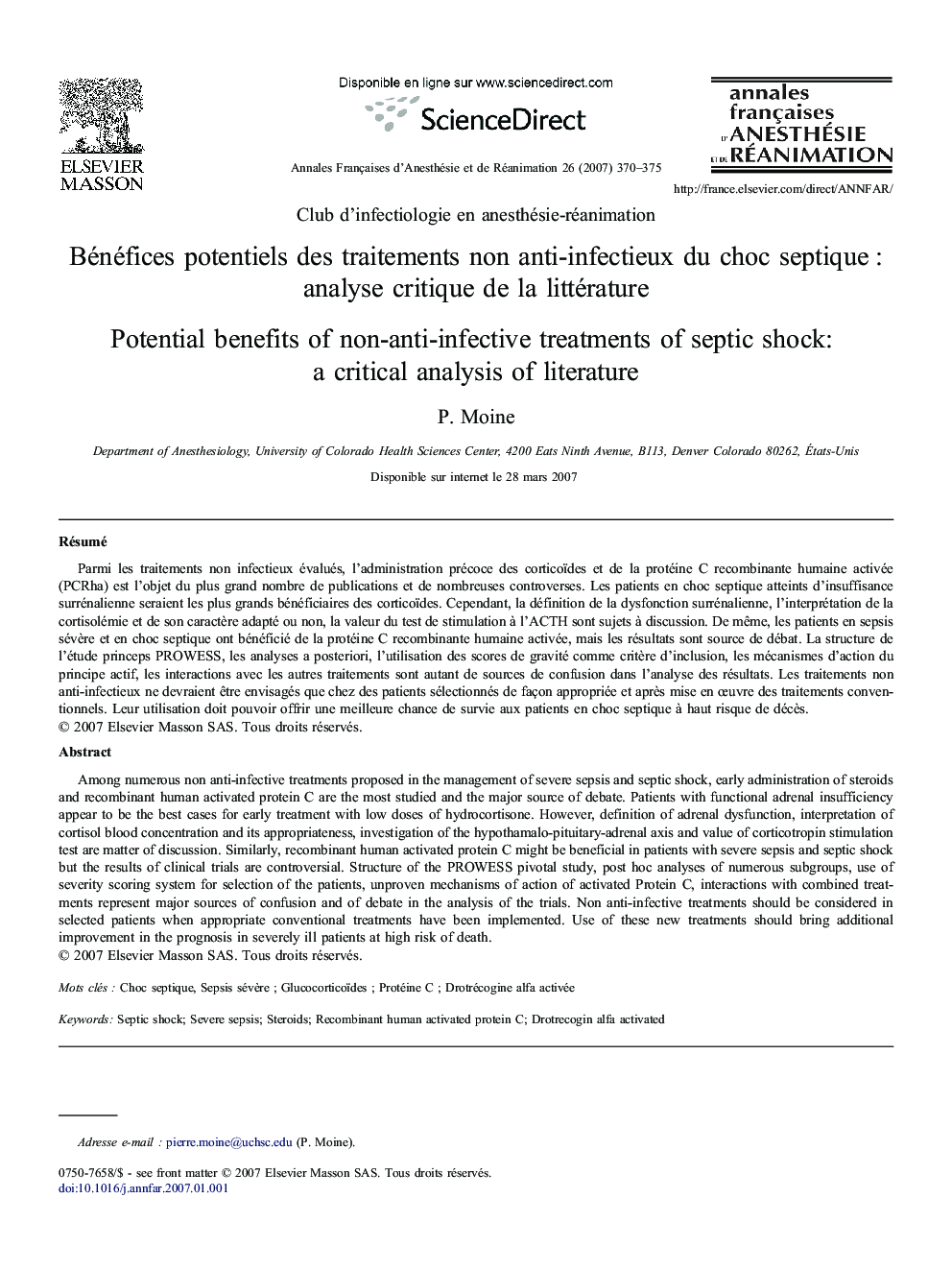| Article ID | Journal | Published Year | Pages | File Type |
|---|---|---|---|---|
| 2746782 | Annales Françaises d'Anesthésie et de Réanimation | 2007 | 6 Pages |
Abstract
Among numerous non anti-infective treatments proposed in the management of severe sepsis and septic shock, early administration of steroids and recombinant human activated protein C are the most studied and the major source of debate. Patients with functional adrenal insufficiency appear to be the best cases for early treatment with low doses of hydrocortisone. However, definition of adrenal dysfunction, interpretation of cortisol blood concentration and its appropriateness, investigation of the hypothamalo-pituitary-adrenal axis and value of corticotropin stimulation test are matter of discussion. Similarly, recombinant human activated protein C might be beneficial in patients with severe sepsis and septic shock but the results of clinical trials are controversial. Structure of the PROWESS pivotal study, post hoc analyses of numerous subgroups, use of severity scoring system for selection of the patients, unproven mechanisms of action of activated Protein C, interactions with combined treatments represent major sources of confusion and of debate in the analysis of the trials. Non anti-infective treatments should be considered in selected patients when appropriate conventional treatments have been implemented. Use of these new treatments should bring additional improvement in the prognosis in severely ill patients at high risk of death.
Keywords
Related Topics
Health Sciences
Medicine and Dentistry
Anesthesiology and Pain Medicine
Authors
P. Moine,
